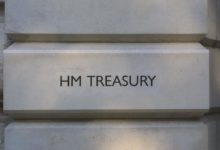
With just days to go until the transition period for the UK to exit the single market comes to an end, businesses across a wide variety of industries are being urged to swiftly put measures in place to ensure their operations with EU suppliers and customers can continue when the country eventually leaves the single market at the end of 31 December 2020.
As hopes of a deal between the two sides continue to wane, firms are left with an incredibly short amount of time to make preparations for importing and exporting goods to and from the EU when the Brexit process finally draws to a close.
From 1st January 2021, businesses importing goods from Europe will be met with a variety of new rules and regulations, and time is running out for companies to understand these new procedures and make changes to ensure that goods can move in and out of the UK.
Familiarise yourself with changes
In advance of the end of the transitional period, businesses will need to familiarise themselves with the changes HMRC have introduced to ensure they are compliant with their new obligations, whether a deal has been secured or not as some of these changes will be introduced irrespective of a trade deal.
Many transactions with EU suppliers or customers have the potential to create irrecoverable VAT costs unless it has taken due consideration of simple points such as who will complete export declarations from the EU or UK and who will clear and pay import VAT on supplies to and from EU businesses.
Another key issue for businesses trying to work out their VAT obligations post-Brexit is the fact that there is no minimum registration threshold for non-EU established businesses that make supplies of goods where the place of supply is the EU and VAT rates will vary from country to country.
Uncertain times
Despite each industry having its own obligations and liabilities to consider ahead of the end of the transitional period, there are a number of common issues faced by businesses across the board when importing and exporting from the EU.
The first is the very real risk of irrecoverable EU VAT costs, which UK businesses are likely to incur if they have not given due consideration to whom will clear and pay import VAT on goods being sold to the EU and much the same applies for EU businesses sending goods to the UK who may incur irrecoverable UK VAT.. There is also a strong possibility that companies could incur demurrage charges from HMRC or an EU tax authority if the goods they are importing or exporting cannot be cleared, and this also comes with a risk of losing customers if the supplier is unable to deliver on goods that have been supplied to the customer but are sitting in a warehouse or on a lorry unable to clear through customs.
In addition, many simplification measures that have eased VAT accounting on certain transactions between UK and EU VAT-registered business will cease following the end of the transitional period.
Examples of this would be:
- triangulation, where goods purchased by a UK business from a supplier in one member state are sold to a VAT registered customer in another member state. Currently using triangulation these are zero rated for UK and EC VAT with the end EC business customer accounting for acquisition tax. Post 31 December 2020 the EC supplier will have to charge VAT on their supply unless the UK business has been able to register in an EC country as a non-established business .This may require the UK business to create an establishment in the EU or to appoint a fiscal representative, dependant on the EU countries involved in the chain.
- Sales of margin scheme goods as goods moving to and from the UK as part of a chain of second-hand dealers will become “normal non-margin scheme supplies”
- Goods sent for processing or disposal in the EU will create a particular headache as if import VAT is incurred in the EU to clear UK goods case law supports the fact that the toll processing business that the goods are sent to cannot recover it.
In addition, from 1 January 2020 distance sales registrations for UK businesses selling goods to EU consumers will become invalid meaning that the EU consumer that the goods are sold to will need to pay their tax authority – or the courier – import VAT and duty to obtain the goods. This will change again on 1 July 2021 when the new One Stop Shop (OSS) for imports will come into play. This will mean that UK businesses will need to register for VAT in an EU member state and submit OSS VAT returns and pay VAT at the rate applicable in the member state where their customer is based,
Another common issue faced by businesses ahead of the UK’s departure from the EU is the ‘place of supply’ rules, meaning that where stock is delivered to a UK/EU storage facility that is not a customs warehouse, drawn off at a later date and sold, the supplier will be likely to become liable to register for VAT in the country where stock is held and sold.
Where supplies of goods are made to EU customers, UK suppliers exporting the goods to the EU will be able to zero-rate the sale for UK VAT, subject to the normal rules such as proof of export being held by the relevant time, but the recipient will need to pay import VAT and duty to clear the goods when they arrive in the EU, unless they fall into the low value import scheme.
While this VAT charge will often not create a sticking cost if it is incurred by an EU business, due to the fact that the recipient may be able to recover the import VAT, many EU businesses have taken the view that these additional compliance burden is not of their making and are refusing to act as the importer, resulting in UK suppliers having to register for VAT in EU countries in order to maintain trading relationships with their EU customers.
Take proactive steps
In order to prepare for the country’s imminent departure from the EU, UK business owners need to consider who will clear goods into the EU that they sell to EU businesses and UK businesses may need to obtain an EU EORI number and register for VAT within the EU. In addition, EU businesses selling to UK customers may now need to obtain a UK EORI number and register for UK VAT.
Unfortunately, many businesses have put off making plans for after Brexit in the hope that a trade deal would be agreed between both sides. With a trade deal now looking unlikely, businesses have only a matter of weeks to make changes. If such businesses intend to continue trading with the EU, they need to put measures in place now.
There are certain steps that businesses trading in the UK can take immediately to ensure they are compliant with any new regulations coming into force on 1st January 2021.
- The simple part is preparing for postponed VAT accounting that will come in from 1 January 2020 with UK VAT registered businesses both declaring, and recovering import VAT to the extent the goods are used to make VATable supplies, on the VAT return covering the month when the goods clear into the UK.
- Non UK businesses making supplies of goods where the place of supply is the UK will need to consider obtaining a UK VAT registration number and applying for a GB EORI number in order to be able to continue trading following the end of the transitional period
- UK businesses will need to check if they need to obtain an EU EORI number and register for VAT in the EU member states that they are trading with or if their customers are prepared to/ able to clear goods into the EU from the UK.
- Review and consider changes to incoterms when selling or purchasing from EU businesses to ensure that both sides are clear on who will complete export declarations and customs clearance procedures for goods coming in and out of the UK
Of course this all sounds very pessimistic but if businesses act now and seek advice to ensure their UK and EU VAT obligations are met following the end of the transition period it will still be possible to maintain their trade with the EU. Taking urgent action will avoid encountering problems further down the line as we enter into more uncertain times.
By Tamara Habberley, Senior VAT Consultant, The VAT People









